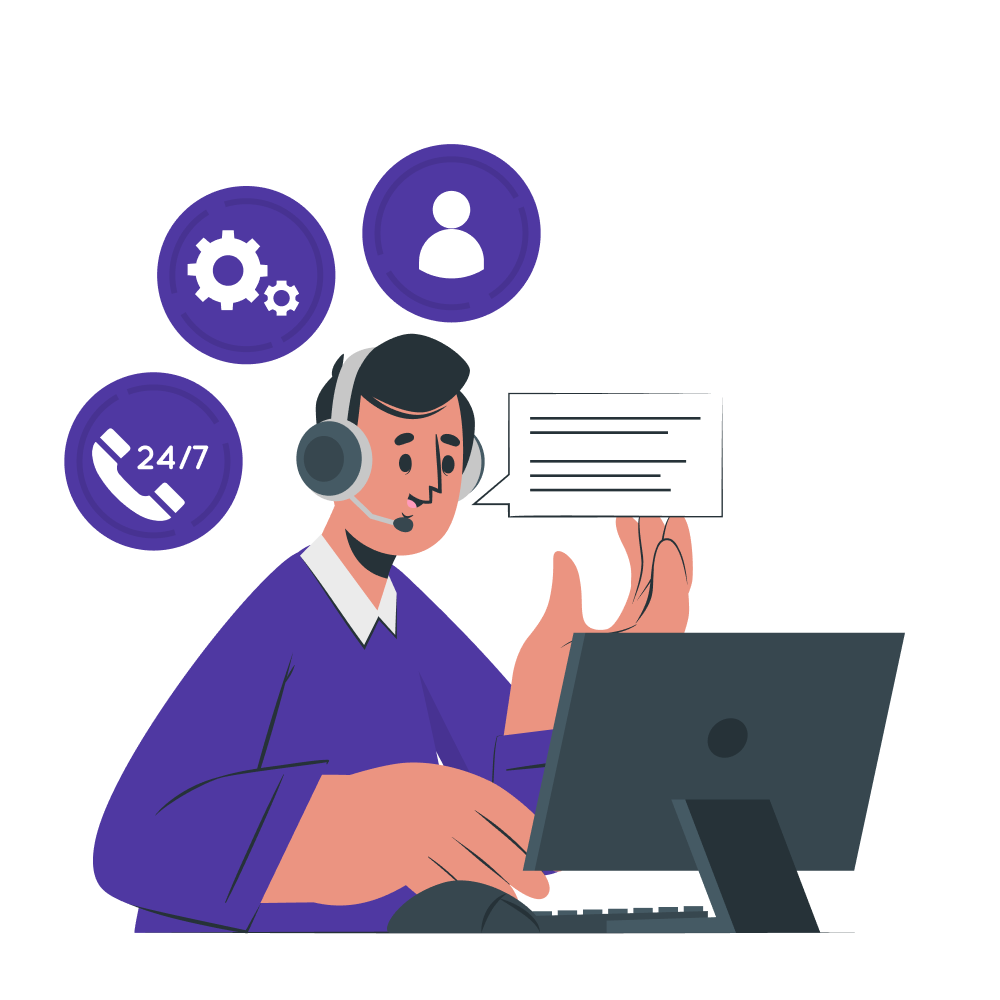
Telecalling is one of the most common yet often misunderstood roles in the business world. Whether you’ve received a call offering a loan, a credit card upgrade or information about an upcoming sale, you’ve interacted with a telecaller. But what exactly does a telecaller do? How do they contribute to a business and what skills are required to succeed in this role?
If you’re considering a career as a telecaller or just trying to understand this job better, you’ve come to the right place. This article will walk you through the responsibilities, skills and different telecaller job descriptions across various industries. We’ll break it down in simple, easy-to-understand language, so you can get a complete picture of what this role is all about.
A telecaller job involves reaching out to customers or potential clients via phone calls to promote services, gather information or follow up on previous interactions. It’s a role that requires clear communication, the ability to handle objections and a willingness to work with various customer needs.
Telecalling can involve two main types of calls: inbound (where customers call in for support or inquiries) and outbound (where telecallers reach out to potential customers). While both types require communication skills, outbound calls typically involve more persuasion and follow-up.
Telecallers play a vital role in businesses across industries, from finance to real estate, healthcare to education. They’re often seen as the first point of contact for a company, setting the tone for future interactions.

A telecaller’s main responsibility is to make and receive phone calls to promote a product, service or collect information. Depending on the company and role, the specific tasks can vary, but some common job responsibilities include:
Telecallers are often tasked with reaching out to potential customers or leads to promote products or services. The goal is to engage the customer, understand their needs and pitch the solution that fits. These calls may be cold (reaching out to people who haven’t shown interest yet) or warm (following up on previous interactions).
Example: “Hi, I’m [Name] from [Company]. I noticed you showed interest in our product and I wanted to share more details with you. Do you have a moment?”
Inbound calls come from customers who already have some level of interest in your product or service. As a telecaller, your job is to respond to inquiries, answer questions, solve issues and guide the caller through any necessary steps — whether it’s helping with an order or providing more information about a product.
Example: “Thank you for calling [Company], how can I assist you today?”
Telecallers also gather important feedback from customers. This could be through surveys, questionnaires or simply asking for insights about their experience with a product or service. This information helps businesses improve their offerings and customer service.
Example: “We’d love to hear about your experience using our app. Could I take a minute to ask a few questions?”
A significant part of a telecaller’s job is following up with customers who may have shown interest or completed an initial action (like signing up for a free trial). These follow-up calls ensure that no opportunity is missed, whether it’s completing a sale, reminding customers about a renewal or confirming an appointment.
Example: “Just a reminder that your subscription is ending soon. Would you like to renew it now or have any questions?”
Being a successful telecaller goes beyond just talking on the phone. It’s about having a combination of soft skills, technical abilities and the right mindset to connect with customers and convert opportunities.
Here’s a list of essential telecaller skills needed to thrive in a telecalling role:
In telecalling, how you communicate is everything. Clear, polite and confident communication will help you engage with customers effectively. Whether you’re explaining a product, answering questions or persuading someone to take action, your ability to convey information simply and confidently is critical.
Listening is just as important as speaking. To offer the right solutions, you need to understand the new and existing customers’ needs, concerns and pain points. Now, customers expect more personalised experiences, and active listening will help you deliver just that.
In 2025, telecalling is deeply intertwined with technology. A telecaller needs to be comfortable using CRM systems, call software and even social media platforms. Telecallers who can navigate these tools efficiently will be more productive and deliver better customer experiences for new and existing clients.
Telecalling can sometimes be a tough job, with rejections, difficult customers or repetitive tasks. Having patience and emotional intelligence will allow you to handle tough situations with ease, stay calm under pressure and understand how customers are feeling during the call.
A good telecaller understands problems and offers solutions, without being pushy. Helping customers feel heard and resolving their concerns is crucial. Whether it’s addressing an objection or convincing a lead to take action, being persuasive without being pushy will help you succeed.
Balancing multiple tasks like making calls and updating CRM records, is part of the job. Prioritise and stay organised to handle your workload efficiently. With the help of automation tools, a telecaller can optimise their workflow and focus on what matters most: customer interaction.
With customer preferences and technologies evolving constantly, telecallers must be adaptable. You should be able to shift your approach depending on the type of call or the customer’s needs. Agility in your mindset and processes will allow you to navigate the ever-changing landscape of telecalling.
Data is king, even in telecalling and knowing the right data and using it effectively will make the difference between a successful and an unsuccessful telecaller.
Every industry relies on telecalling, but the job responsibilities can vary depending on the sector. While the core duties of a telecaller — making calls, engaging with customers and providing support — remain consistent, the specific tasks and goals differ across industries. Below, we’ve outlined the telecaller job descriptions for various sectors to give you a clearer idea of how the role adapts to each industry.
BPO telecallers are responsible for managing inbound and outbound calls for clients in various industries. Their main job is to handle customer enquiries, resolve issues and meet service-level targets while ensuring customer satisfaction.
Responsibilities

Real estate telecallers focus on generating leads, following up with potential buyers or tenants and scheduling site visits. They are key in converting enquiries into actual property sales or rentals by maintaining strong communication with prospects.
Responsibilities
Collection telecallers are responsible for contacting customers who have overdue payments and reminding them to settle their debts. They play a vital role in maintaining the company’s cash flow and ensuring that payments are collected in a timely manner.
Responsibilities
A fresher in telecalling typically has less experience but is expected to follow scripts, handle customer queries and learn quickly. The role is an excellent entry-level opportunity for individuals looking to start their career in sales, customer service or telemarketing.
Responsibilities
Credit card telecallers focus on promoting credit card products, explaining features and convincing customers to apply. They play a key role in acquiring new customers for banks or financial institutions.
Responsibilities

Insurance telecallers are responsible for promoting insurance products, answering queries and helping customers choose the best policies based on their needs. They play an essential role in the sales process for insurance companies.
Responsibilities
Bank telecallers are responsible for promoting banking products such as loans, credit cards and savings accounts. They handle customer inquiries, follow up on leads and assist in closing sales to meet financial institution goals.
Responsibilities:
HR telecallers are responsible for managing the recruitment process by reaching out to potential candidates, conducting initial screenings and scheduling interviews. They act as the first point of contact for job seekers and help streamline the hiring process.

Responsibilities
Related Read: What Is Telecalling? The Ultimate No BS Guide
Job Title: Telecaller
Department: [Department Name]
Location: [Location]
Reports To: [Supervisor/Manager Name]
Job summary
We are looking for a motivated and skilled Telecaller to join our team. The Telecaller will be responsible for making outbound calls to potential customers, handling inbound calls, and providing excellent customer service. You will promote our products/services, gather feedback, and ensure that all customer interactions are handled efficiently and professionally.
Key responsibilities
Skills and qualifications
Education and experience
Working conditions
How to apply
Interested candidates can send their resumes to [email address] or apply directly through [application method/website link].
Once you have acquired the skills mentioned above, you need to start your hunt for a good telecalling job. Here’s the exact process you can follow to get a good telecaller job in a good company:
Identify the industry you’re most interested in — whether it’s B2B, real estate, education, insurance, banking or another sector. Take the time to research and understand the ins and outs of that industry. Additionally, be aware that different regions may have different requirements, so ensure your industry knowledge aligns with local expectations.
Craft a resume that emphasises your key skills, such as communication, problem-solving and attention to detail. If you have prior experience in customer service or sales, make sure to highlight that, as it will give you an edge in the competitive job market.
In this article, we have seen,
So if you’re someone who wants to start their career in telecalling, it’s time for you to take action — hone your skills, build your portfolio and then apply for telecalling jobs.
And if you’re a business owner looking to streamline your telecalling efforts with a CRM (customer relationship management) software, you can consider Telecrm — India’s best telecalling software designed for sales teams that rely on SIM-based calling and WhatsApp for sales. Book a free demo to see Telecrm in action!


© Copyright 2025 Telecrm.in - All Rights Reserved • Privacy Policy • T&C


© Copyright 2025 Telecrm.in - All Rights Reserved • Privacy Policy • T&C